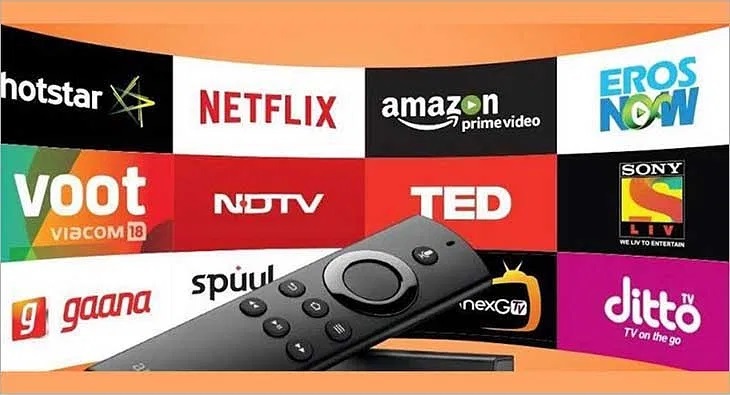
The Covid-19 pandemic has constrained various undertakings to adopt remote working, a practice that may cause a transformation in working trends, alongside holding significance in the post-COVID-19 world. With no entrance to theatres, shopping centers, and other sources of entertainment, individuals at home have depended on Pay-TV and OTT platforms for their daily dose of entertainment. Individuals are searching for various other approaches to keep themselves engaged during the lockdown, and the large spike in online-look for ‘Films to watch during coronavirus' adds more weightage to the case.
In just the first quarter of 2020, Netflix included an amazing 15.8 million paid subscribers as a self-quarantined crowd went to the stage without other entertainment alternatives.
As per a report by Reuters, Netflix's worldwide sum has arrived at 182.9 million from January to March, with the viewers bingeing on shows like Money Heist, or Love and Blind.
Other video streaming platforms like Hotstar, Amazon Prime, and ZEE5 have likewise seen a spike in numbers, imparting a feeling of idealism in the business regarding the future of OTT platforms. As the name recommends, these platforms offer content legitimately to watchers through the Internet.
So, what is the eventual fate of OTT platforms? Is the development in video utilization through these platforms fleeting or OTT platforms are digging in for the long haul?
Let Us Find Out in Brief
Potential Impacts of OTT on Entertainment

The rise of OTT platform has disturbed the entertainment industry. It is being moved by the ascent in the way of life, advancement of cell phones, omnipresent and moderate Internet network combined with expanding infiltration in country regions, and changing preferences of the viewers. Content is currently a ruler from a genuine perspective, and it is customized and gives the chance to more extensive cantered circulation. An ongoing Boston Consulting Group report has anticipated that the OTT section in India is already pegged at $0.5 billion and is ready to develop to $5 billion by 2023. Convenience and affordability are the key factors that have impelled the OTT revolution in the Entertainment business.
As OTT platforms are picking up popularity, obliging the clients' needs turns out to be progressively significant. The adjustment in users' behavior because of the limitations of COVID19 has been instrumental in upsetting entertainment outlets obviously.
Ascribing this move in trend, encouraging the content, and imparting it to the users turns into a standard for the OTT players. Also, the application advertising methodologies have moved towards a more client-driven methodology. Services providers presently look to cater to user preferences in a personalized manner dependent on their profile and content viewing behavior. OTT stages have a storehouse of content accessible for their clients. Subsequently, making the application tenacity that prompts users to “binge-watch” shows turns out to be very important to drive value to the entertainment business.
OTT Trends to Watch Out in 2020

YouTube and video-streaming goliath Netflix topped worldwide application spend in Q1 2020, as indicated by App Annie. Netflix likewise observed a flood in its stock value.
This year, the audiences were likewise rewarded to Disney+ content with the services at finally turning out in India through Hotstar.
A couple of OTT platforms are even offering extended free periods to drive memberships in the wake of the coronavirus emergency. Overall digital subscription incomes are probably going to see a rise, picking up from the “habit formation” that is going on now.
OTT audio stages like Gaana and Spotify may likewise observe an ascent in their incomes. Starting at now, they are hoping to build the extent of the paid subscriber of around 6% of the all-out customer base.
So, there's nobody to completely blame for this digital transformation in viewers' decisions. The lockdown time frame has made this “OTT versus Theatres” rivalry in the favor of OTT platforms. Although, this competition between the two has quite recently started and isn't going to end soon.
